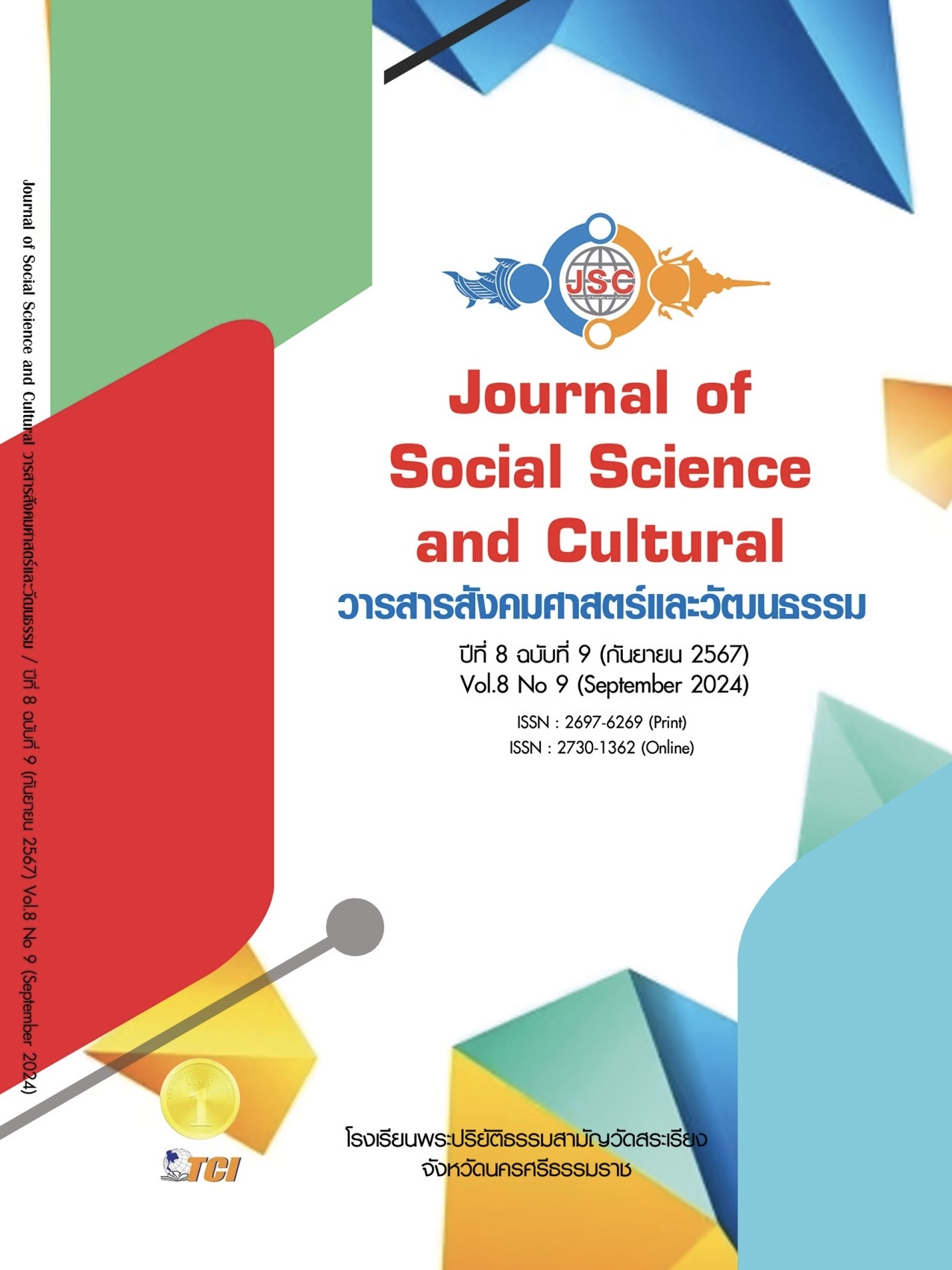THE INFLUENCE OF EXECUTIVE LEADERSHIP AND WORK ENGAGEMENT TOWARDS ORGANIZATIONAL COMMITMENT OF EMPLOYEES IN INTERNATIONAL MARITIME BUSINESS IN THAILAND
Main Article Content
Abstract
The study of The Influence of Executive Leadership and Work Engagement towards Organizational Commitment of Employees in International Maritime Business in Thailand aimed to 1) Study the influence of executive leadership on work engagement in the international maritime business in Thailand and 2) Study the influence of job commitment on organizational commitment of employees in the international maritime business in Thailand, which was a quantitative research. The sample group was 385 personnel working in the international shipping business in Thailand, working in Bangkok. The research instrument was a questionnaire. The statistics used for data analysis were frequency, percentage, standard deviation, and multiple regression analysis. The results of the research found that 1) Most of the respondents were male, aged 41 - 50 years, married, graduated with a bachelor's degree, held the position of executive/manager, and had worked for more than 6 years. 2) Supportive leadership, directive leadership, and participative leadership had a positive influence on organizational commitment, while achievement-oriented leadership had a negative influence on organizational commitment of personnel in this business, with a statistical significance level of .05. 3) Work commitment in terms of work energy and the sense of unity has a positive influence on the organizational commitment of employees in this business, with statistical significance at the .05 level. This study offers guidelines for human resource management to enhance the leadership of executives, create work commitment and organizational commitment of employees.
Article Details
References
กระทรวงคมนาคม. (2565). รายงานการวิเคราะห์งบประมาณรายจ่ายประจำปีงบประมาณ พ.ศ. 2565. (พิมพ์ครั้งที่ 1). กรุงเทพมหานคร: สำนักงบประมาณของรัฐสภา.
กัลยา วานิชย์บัญชา. (2546). การใช้ SPSS for Window ในการวิเคราะห์ข้อมูล. (พิมพ์ครั้งที่ 6). กรุงเทพมหานคร: บริษัทธรรมสาร.
ปาณัสม์ ธิติวรธำรง. (2560). ความสัมพันธ์ระหว่างคุณลักษณะผู้นำ และพฤติกรรมผู้นำของหัวหน้า กับความผูกพันองค์การของพนักงานขาย: กรณีศึกษาบริษัทให้บริการสินเชื่อและบัตรเครดิตแห่งหนึ่ง. วารสารการพัฒนาทรัพยากรมนุษย์และองค์การ, 9(1), 60-79.
ปาณิสรา จรัสวิญญู และคณะ. (2560). รูปแบบความสัมพันธ์เชิงสาเหตุของปัจจัยที่ส่งผลต่อใจผูกพันกับงาน และความผูกพันต่อองค์กรของพนักงานของธุรกิจซอฟต์แวร์ในประเทศไทย. Journal of Business, Innovation and Sustainability (JBIS), 12(1), 107-123.
วุฒิ สุขเจริญ. (2562). วิจัยการตลาด. กรุงเทพมหานคร: โรงพิมพ์แห่งจุฬาลงกรณ์มหาวิทยาลัย.
เสาวลักษณ์ กองทอง และคณะ. (2567). ภาวะผู้นำที่ส่งผลต่อความผูกพันต่อองค์การของพนักงานเจนเนอเรชันวายในนิคมอุตสาหกรรมบางปู จังหวัดสมุทรปราการ. วารสารมนุษยศาสตร์และสังคมศาสตร์ มหาวิทยาลัยราชพฤกษ์, 10(1), 192-207.
Cochran, W. G. (1953). Sampling Techniques. New York: John Wiley & Sons, Inc.
Dossary, R. N. (2022). Leadership Style, Work Engagement and Organizational Commitment Among Nurses in Saudi Arabian Hospitals. Journal of Healthcare Leadership, 14(1), 71-81.
Geldenhuys, M. et al. (2014). Meaningful work, work engagement and organizational commitment: original research. SA Journal of Industrial Psychology, 40(1), 1-10.
Orgambídez, A. et al. (2019). Self-efficacy and organizational commitment among Spanish nurses: the role of work engagement. International Nursing Review, 66(3), 381-388.


